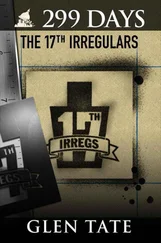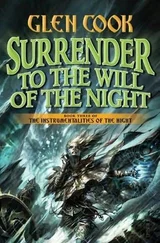During the first few weeks of the Collapse, the government was clearly the strongest organization in the country. But, as the weeks wore on, criminal gangs got stronger and stronger. In the end, the gangs were stronger because they ran the government. Just like what happened in Mexico.
Criminal gangs were often organized along ethnic lines, like the Russians or Mexicans. The criminal gangs ran protection rackets and sold guns, drugs, prostitutes, and gasoline. “Gang gas,” as their gasoline became known, was often diluted with water so it didn’t run reliably in vehicles. “Gang gas” was useful for arson, but couldn’t be counted on for running a car. The government still sold pure gasoline, called “government gas.” It was usually reliable.
One of the biggest items gangs sold was guns. Every imaginable kind of gun was for sale. Some were law enforcement and military weapons sold by corrupt cops or soldiers. Guns were illegal, of course, but that law was rarely enforced. When a gun law was enforced, it was a tool to get rid of a government opponent or rival gang member.
Something interesting about guns happened during the Collapse. Guns, which were totally illegal, became a status symbol. People with political power or gangs who were above the law would openly display them. Displaying a gun meant, “I don’t have to follow the law. You need to fear me. I can ruin you.” The liberals in West Seattle, who hated guns, seemed to love it when powerful people displayed them. It was like the liberals loved the fact that people— their people—had power. It was reassuring to the liberals that their kind had so much power. It was hypocrisy, of course: no one can have guns except us, the powerful.
It reminded Ed of the liberals before the Collapse and how they revered rich liberals, like Michael Moore, who were multimillionaires but wanted to take away all the money from the “rich.” Hypocrisy was power and the liberals loved the power.
In addition to the traditional criminal gangs, there were also white-collar gangs. They became known as the “Rotary Club gangs.” These were the people who, for example, ran health care and sold black market medical services. If someone needed to see a dentist and have some anesthesia for a root canal, they paid the gang that was protecting the dentist’s business. They paid the gang in whatever they had, like FCards, and they got dental work. Of course, with all the regulations, a law-abiding dentist must take their insurance and process that, which was impossible given the Collapse. So, when the legal way to operate became impossible, illegal ways sprang up. People needed dental work, after all.
White-collar gangs were interesting because of the people who were in them. Most were government bureaucrats like, in the example of a a “gang dentist” the health care regulators who looked the other way when the dentist was accepting FCards. They no longer had government jobs, but they had connections that were extremely valuable. While they wore white collars, everyone knew that they could rent some muscle and hurt people. It was the natural progression of government power. At first, they were regulators using soft governmental force like regulations to get what they wanted. Now they weren’t even trying to hide the fact that they were using very direct and brutal force to get what they wanted.
There was another category of gang that was neither a traditional ethnic gang nor a white-collar gang: cops. Some police, most of the ones still left in larger cities, were corrupt. They were either in a gang themselves or were paid by gangs to look the other way, arrest competitors, or use police force on whomever the paying gang wanted. Almost all of the good cops, which had been the majority, left the force during the budget cuts or because they couldn’t stand the pre-Collapse corruption. The bad ones—the really bad ones—were what was left. And they were having a field day.
Ed heard rumors about another group to beware of: paras. They were non-government paramilitary groups. Vigilantes, essentially. Since the police were either incapable or bought off, paras would go out and fight crime and corruption. All Ed knew was that once in a while a white-collar or criminal gang member would wind up dead and the cops would just smile.
All of this—the criminal gangs, white-collar gangs, corrupt cops, paras, women selling themselves, everyone breaking the law and living in black or grey market, barter instead of cash, small businesses springing up, the economy totally halting—reminded Ed’s neighbor, Dmitri, of life during the Russian collapse of the 1990s.
Dmitri was so calm about what was happening. He’d seen it before. Ed asked him what the main difference was between the Russian and American collapses.
“Guns,” Dmitri said. “You Americans have so many guns in private hands. In Russia, only the government had guns. There was no way to stop them. But Americans have guns. This is how you will stop this. If you are not too fat and lazy, as I think you might be. Pardon me. I mean no offense. But this is what I see. Good news is your guns, bad news is you have become fat and lazy. We will see which part of America wins.”
“How did you make it through the Russian collapse?” Ed asked Dmitri.
“I was the gray man,” Dmitri said.
“The what?”
“A gray man,” Dmitri said, “is one who lives in a dictatorship or corrupt society without being noticed. Instead of being a freedom fighter, the gray man just blends in, like he is gray; not black or white. He goes along with the authorities when he has to. But when the authorities are not looking, the gray man does all he can to bring them down. He cheats on his taxes, he might sabotage something small, he might even go out at night and hunt down government agents. He is an informant for the resistance, but he does it quietly, without advertising that he is a freedom fighter.”
“In the former Soviet Union,” Dmitri said, “most people were gray men and women. That is why the regime fell so quickly. Years of weakening the regime from within by the small bits of resistance from the gray men led to the fall of the authorities. And once it was clear that the authorities were losing power, millions of gray men and women sprang into action. This is why the Soviet Union fell apart so quickly. Most people were gray to some degree, and they were ready to make life as miserable as possible for the government once they had a chance.”
Dmitri thought for a moment. He was struggling with what he was about to say. “I would not have lived if I had been an open freedom fighter. I could only survive by being a gray man.” He paused again. “It is not cowardice that leads a gray man to quietly resist instead of openly fighting. It is survival. I did all I could.” He looked at Ed and said, “I did all I could.” Dmitri obviously felt guilty that he hadn’t done more.
“I’m sure you did plenty, Dmitri,” Ed said. He thought about what Dmitri said about being a gray man. It made sense. It solved the problem Ed had been struggling with, which was how to resist, but not get killed in the process. Dying didn’t accomplish much. Dying was a pretty bad survival plan.
Ed decided that he would be a gray man. But, could he pull it off? Or did the government already know about him? Before the Collapse, he had sued the corrupt state board of realtors and won. He had exposed them. Except no one had cared. With all the government had on its plate now, would they really be keeping track of people who had sued them a few years before? They were struggling to keep people fed. Ed hadn’t talked too much about his case at the time because, as glad as he was to expose them, he was still scared of them, so he kept his tussle with the government relatively quiet.
Читать дальше











